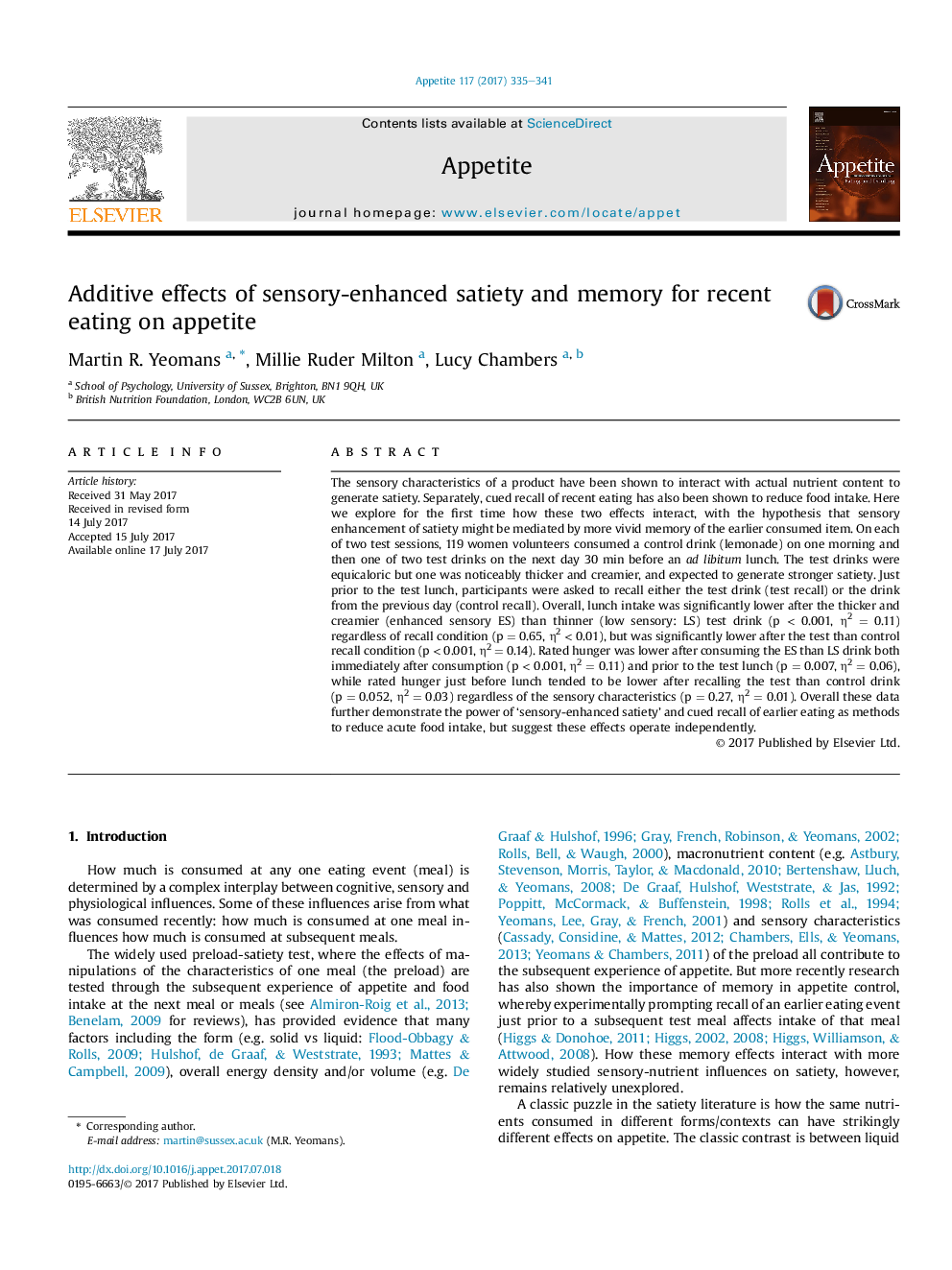ترجمه فارسی عنوان مقاله
اثرات افزایشی سفتی و حافظه حس گرایانه برای مصرف اخیر در اشتها
عنوان انگلیسی
Additive effects of sensory-enhanced satiety and memory for recent eating on appetite
| کد مقاله | سال انتشار | تعداد صفحات مقاله انگلیسی |
|---|---|---|
| 160473 | 2017 | 7 صفحه PDF |
منبع

Publisher : Elsevier - Science Direct (الزویر - ساینس دایرکت)
Journal : Appetite, Volume 117, 1 October 2017, Pages 335-341

